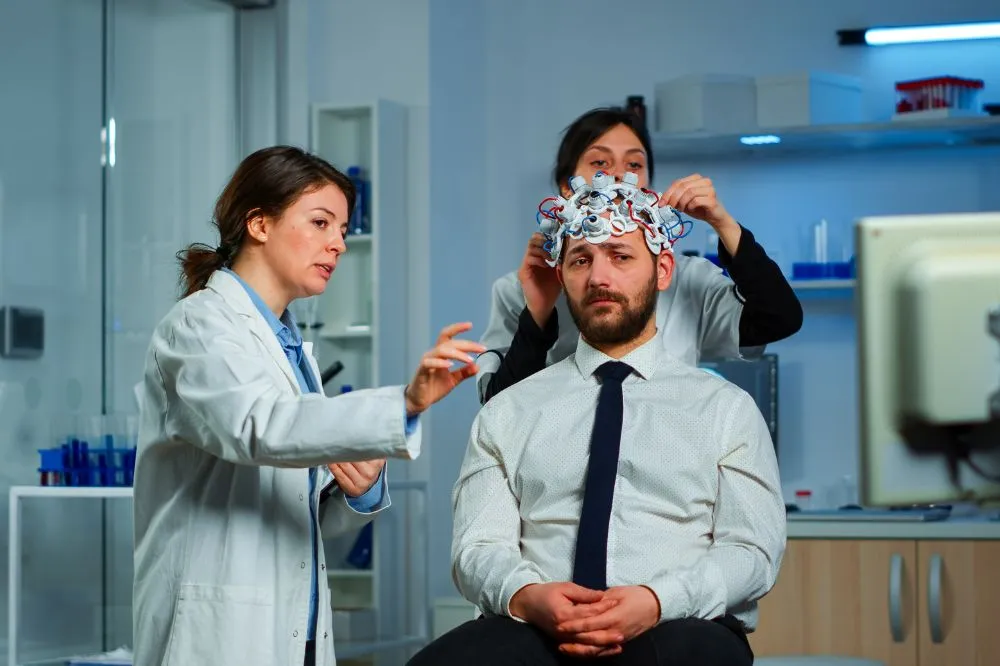Summary: Medical researchers increasingly realize the role of inadequate sleep in the rising prevalence of physical and mental illnesses. However, a new study suggests that sleep deprivation may affect human perception. It may negatively affect people’s ability to interpret other people’s emotions. Sleep-deprived individuals are also more likely to view others as less trustworthy and attractive. Thus, insufficient sleep may affect people’s emotional states and negatively affect interpersonal relationships. This may contribute to the falling mental and physical health.
Researchers have been paying significant attention to insufficient sleep as an independent risk factor for metabolic health disorders and mental health issues in recent years. Therefore, understanding the role of sleep-in health is vital. After all, it is among the modifiable risk factors.
Healthcare experts are puzzled by the rise of so many sleep deprivation health effects, which are non-communicable (non-infectious), like Alzheimer’s, depression, chronic pain conditions, and more. However, they know this rise definitely has to do with changing lifestyle choices. Moreover, this change has been particularly brisk in the last few decades.
Studies suggest that the human body must spend about one-third of its time resting. Thus, most experts believe that people should try to have sound sleep for at least 7 hours each day. It is not difficult to achieve, but most people struggle to achieve this health target.
Experts also warn that just lying on the bed or watching television is not counted as good rest. In addition, time spent on the bed changing sides is also not counted as sleeping hours.
There is now significant evidence that insufficient or poor-quality sleep plays a significant role in the development of various health problems. For example, it is causing an epidemic of mental health problems. And now, a new study suggests that insufficient sleep may even interfere with our perceptions, causing trouble in our relations with other people.
Sleep deprivation alters our perceptions and how we interpret emotions and people
For humans, the face provides much information and plays a vital role in both verbal and non-verbal communication. If verbal communication is relatively straightforward to interpret for a healthy mind, interpreting non-verbal communication, state of emotions, is more complex.
A new study suggests that sleep deprivation may make it difficult for individuals to focus on others and interpret their emotional states. This may negatively impact their relationships with others, thus adversely affecting their quality of life.
The experiment was pretty simple. Researchers enrolled 45 young adults in the study. They were completely deprived of sleep for a night and then shown images of happy, fearful, angry, and neutral faces. A similar kind of experiment was repeated, but after having a good night’s sleep.
Experts expected that sleep deprivation would force people to gaze longer at the images to interpret the represented emotional state. However, they were amazed at the opposite results. In fact, sleep-deprived individuals focused less on the images showing various emotions.
Additionally, participants were also asked to evaluate the people in the images. Researchers found that when sleep deprived, individuals were more likely to classify other people as less trustworthy and attractive.
Along with the physical effects of sleep deprivation, it can also reduce an individual’s ability to interpret the emotions of others. Moreover, sleep-deprived individuals were more likely to have negative views of others. All this means that individuals with sleep deprivation are more likely to suffer from stress and mental health issues, especially in the long term.
Conversely, sufficient and sound sleep can ensure a good mood, a better interpretation of other people’s emotions, and a more optimistic outlook. This would eventually have a positive impact on interpersonal relationships and mental health.
Thus, if you are feeling stressed or struggling with relationships, it is quite likely that you might be showing the symptoms of chronic sleep deprivation. Sleep therapies and telehealth treatment can not only help improve sleep but also help enhance physical and mental well-being.






